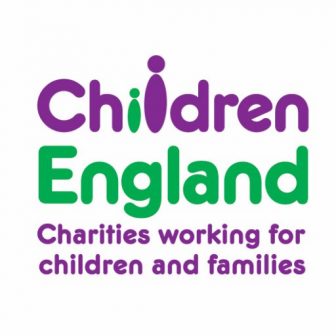
Value beyond money – part 2
In this second part of her essay about the unique contribution of children’s charities, Kathy Evans calls on policymakers to recognise the true worth of the voluntary sector, and to embrace different and more appropriate models of evaluating its activity.
 In 2016, Children England launched the Declaration of Interdependence in the Financial Times, produced in partnership with the TUC and a wide range of voluntary sector bodies and trades unions, in the belief that both public and voluntary sectors must urgently move beyond price-driven contracting, stop fighting short term battles for our separate organisational interests, and pool our resources to build sustainable community services. With the first local authority joining its growing list of endorsements, it seems we are not alone in seeing the writing on the wall for ‘business as usual’ in the outsourcing and procurement of public services.
In 2016, Children England launched the Declaration of Interdependence in the Financial Times, produced in partnership with the TUC and a wide range of voluntary sector bodies and trades unions, in the belief that both public and voluntary sectors must urgently move beyond price-driven contracting, stop fighting short term battles for our separate organisational interests, and pool our resources to build sustainable community services. With the first local authority joining its growing list of endorsements, it seems we are not alone in seeing the writing on the wall for ‘business as usual’ in the outsourcing and procurement of public services.
If we simply accept that the test of our worth is to do whatever it takes to survive in a financial Hunger Games, we sell ourselves short and devalue our currency. We have the capacity to act as a ‘currency converter’ between what the economist Edgar Cahn calls the ‘core economy’ of family, friendship and community, and the ‘cash economy’ where everyone and everything must be paid for.
If we simply accept that the test of our worth is to do whatever it takes to survive in a financial Hunger Games, we sell ourselves short and devalue our currency.
As a sector we can generate money out of economic thin air, out of people’s used books and clothes, their parties and performances, their sporting endeavours, their creative talents. We can turn the feelings that motivate their giving – love, solidarity, reciprocity, even anger and frustration – into hard assets in the cash economy with which we create jobs, pay taxes, and raise budgets that can add to the capacity of the public purse. But that currency conversion can’t happen if we operate like burger retailers competing for market share. No-one ever ran a marathon to raise funds to boost Burger King’s bottom line.
Strengthening social currency
Currency conversion can work the other way too of course. When we do get cash from government we can use it to build and strengthen social currency in the core economy, to stimulate vast fabrics of human cooperation and creativity that no other sector could create for any amount of money. But that currency conversion can’t happen if we’re tied into contracts to engineer social outcomes that are so tightly specified and monitored that we morph into professional bureaucrats just to manage them.
To a cash economy up to its eyeballs in debt, and to politicians with tough value judgments ahead about how to spend public money, what our sector can do is nothing short of economic magic. If we’re smart we’ll stop selling ourselves on the basis of our competitive value for money. If they’re smart they’ll realise that what we can do is not just a bargain, it is priceless.
Kathy Evans
Kathy Evans is the CEO of Children England.
This essay was first published in the book Making Good: the future of the voluntary sector published by Civil Exchange.
Photo: Dick Sijtsma

Children England is the national membership organisation for children’s charities in England. It was ‘created, governed and inspired by other charities … to change the world for England’s children by harnessing the energy, ingenuity and expertise of the voluntary organisations that work on their behalf’.




